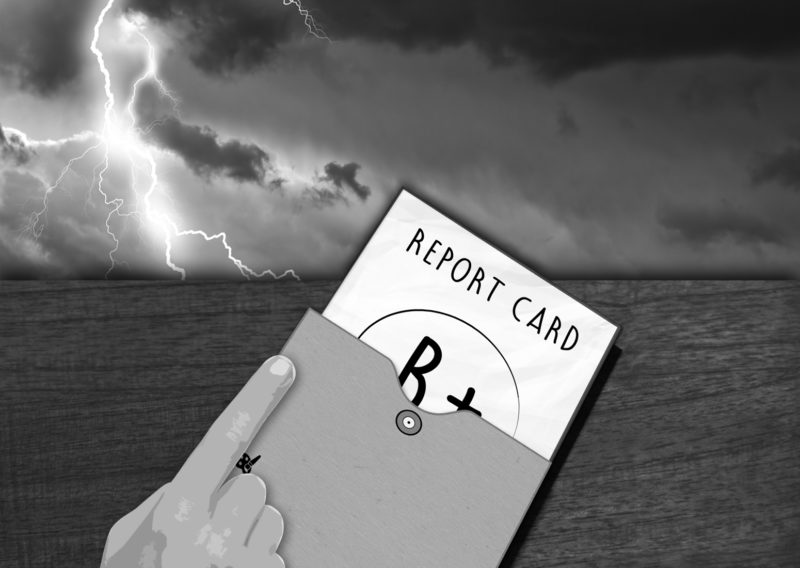“Joey, I cannot believe he gave me a B minus on this essay. Another B for this class? My performance is worsening. This is shocking!”
Okay, don’t call me a humblebrag, but that was my very honest reaction as I saw a B minus on my art history essay. For a formerly straight-A kid who was very serious about education, a B could mean the collapse of the world. These few lower grades mired me in continual self-doubt about my performance and intelligence.
It was astonishing to know that I was not the only one to go through this stage. Everyone in their academic life at one point experienced this uncomfortable time. Many of my peers shared with me that they felt like failures in college, and they were concerned about their future and grad school plan for not having a perfect GPA. This article will help you get over the flattering childhood nostalgia, overcome the perfectionist mindset, and prove why a few low grades are not bad at all.
Imperfect grades mean that you are actually learning. John Maxwell, an American author who is famous for many well-known leadership books, once said, “If you’re always at the head of your class, then you’re in the wrong class.” You do not pay for Trinity to go to easy classes in which the professors repeat the things you have known. Therefore, the fact that you do not do perfectly well in all classes simply implies that there are parts of academia you have not discovered. You may be a math master, but you may not yet know everything about coding, the difference between Italian and Northern European Art during the Renaissance Era, or why the War on Drugs is a failure. The lower grades have little to reflect your true intelligence and potential. In fact, they indicate that you don’t know everything and knowledge is immeasurable. Smart students will not let a few imperfect grades hinder them from learning and improving their limitations.
Imperfect performance may suggest that the field of study does not fit you. And that is the reason why you chose a liberal arts school like Trinity: to measure your strength and weakness in different fields and find your niche. For those subjects you have a harder and more miserable time to study, they may not be the things you want to do for life. Without the appearance of low grades in certain classes, you would not be able to eliminate some of the choices that seem fit at first but in fact they are not.
The poor performance in some classes can be a reason for you to extend your social network and diverse your experience. Normally when you are too perfect, you usually work in your own cage and do not have any reason to reach out for others for help. However, when you struggle with something, you have no choice but to contact the professor or make connections with other peers in that class to assist you with the hardship. The inadvertent byproduct of this connection is that it initiates the formation of a diverse network. It gives you reasons to connect people out of your field. And therefore, you have chances to get to know the multitudes of academia and step out of your own confinement.
Last but not least, do not let the Bs, Cs, Ds, or even Fs make you feel like you become more stupid as you grow up. They are just indicators that you are growing up. You are no longer babies who only want to hear mellifluous words and cheerful compliments. You are now ready to face your imperfect self that parents and teachers always tried to cover up. You are now courageous enough to accept the challenges that give you the multiple spectrum of experience, despite good or bad. In short, it is not the grades that define you. It is how you deal with these early failures that suggest your maturity and personalities.
Grades matter, but what you actually learn weighs more. You do not pay for Trinity just to get good numbers, but to genuinely learn and feel comfortable with challenges. Therefore, whatever B’s, C’s, D’s or F’s you just got, embrace such imperfections and turn them into fruitful fuel to get you farther on this academic journey.







